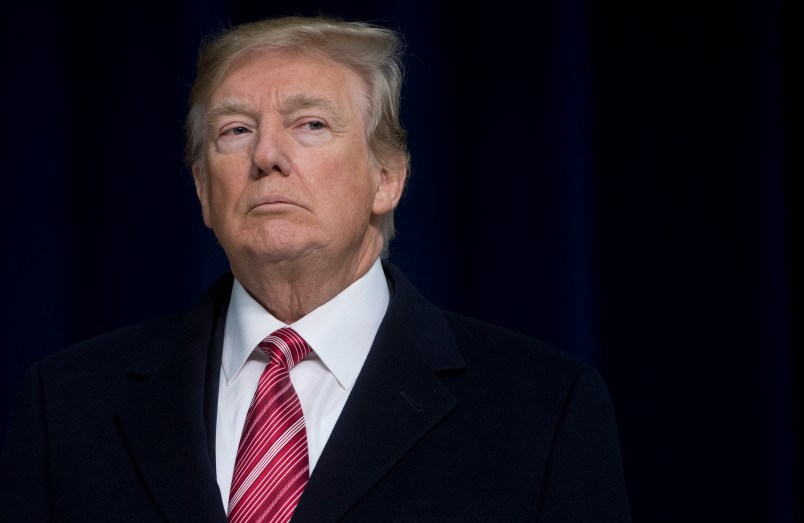The legal battle that is about to ensue over a question the Trump administration wants to add to the 2020 Census will be unlike major litigation around past censuses.
After an unprecedented move by the Trump administration to add a controversial question late in the Census planning process, courts will be asked to take an unprecedented step of preventing the administration from making the change before the count.
California filed a lawsuit challenging Commerce Secretary Wilbur Ross’ decision to add a citizenship question to the upcoming Census just hours after the change was announced. Several other groups and parties are lining up behind California Attorney General Xavier Becerra with plans to bring legal challenges of their own.
Every Census is the target of a fair share of lawsuits. But the legal ground to be tread this time will be fresh, Census experts and voting rights attorneys tell TPM.
“There is no clear analogous previous case, but there’s no clear previous analogous circumstance like this either,” said Thomas Saenz, president and general counsel of Mexican American Legal Defense and Educational Fund.
The stakes are extremely high, not just for immigrant populations, but for the states where they live and for the communities that serve them. If the question dis-incentivizes certain populations from participating — as many experts and advocates expect — the undercount would lead to a shrinking of their political representation, and a stiffing of federal resources allocated for them.
The lawsuit that California filed Monday alleges that the move violates the Constitution’s Enumeration Clause, which mandates that “actual enumeration” of people in the United State be used to apportion congressional districts. The suit also claims the addition of the question violates the Administrative Procedure Act, which prohibits “arbitrary and capricious” agency action.
“If you undertake methods, like the citizenship question, that are guaranteed to prevent you from conducting a Census that is fair and accurate, you are in dereliction of your basic constitutional duties,” said Tom Wolf, counsel with the Democracy Program at the Brennan Center, explaining the constitutional argument against adding the question.
But that’s a standard courts haven’t fully explored, even as they have dealt with numerous Census-related lawsuits in the past, according to Terri Anne Lowenthal, a leading expert on the survey.
“We do find that the courts have generally given the Census Bureau a lot of deference in terms of those decisions about where to count people and how to count people,” Lowenthal, a former director of the House census oversight subcommittee, said at a forum last week. “So in my mind the unanswered question is: Is there a floor that constitutionally prompts a court to step in and say, ‘This has gone below what’s acceptable’?”
In the past, courts have had to deal with questions about where overseas military populations should be counted, what methods the Census uses to adjust states’ population estimates, and what it should do with its estimates for undercounts. However, according to Wolf, there have been far fewer court cases dealing with changes sought to the Census before it undertakes its next survey.
“There will be guidance from the courts in terms of the meaning of the enumeration clause,” Wolf said. “But the Census is kind of a unique creature in terms of the litigation subjects. There has not been a huge amount of litigation on the kind of nooks and crannies of the Census.”
One thing those supportive of legal challenges to the citizenship question say they’re keeping in mind is how to conduct messaging around the Census while the lawsuits are underway, without further diminishing public confidence in the Census.
“The fact that this is even being raised is already creating harm for the community, is already creating some fear for the community that all of us will need to work to undo,” John Yang, president and executive director of Asian Americans Advancing Justice, said on a conference call with reporters. “Typically you have had a situation where you have tried to create partnerships with the Census Bureau, make sure that we have trusted messengers out there that will ensure that the community will understand the importance of being counted and the safeguards that are in place for being counted. Under this current environment, it was already very challenging.”
Saenz predicted the move may even backfire on the Trump administration by further motivating Latinos and other vulnerable populations to participate in an act of defiance, while courts wrangle with the question.
“We haven’t really faced this circumstance where there’s a clear obstacle to a complete enumeration that has been put in place for political reasons,” Saenz said.










